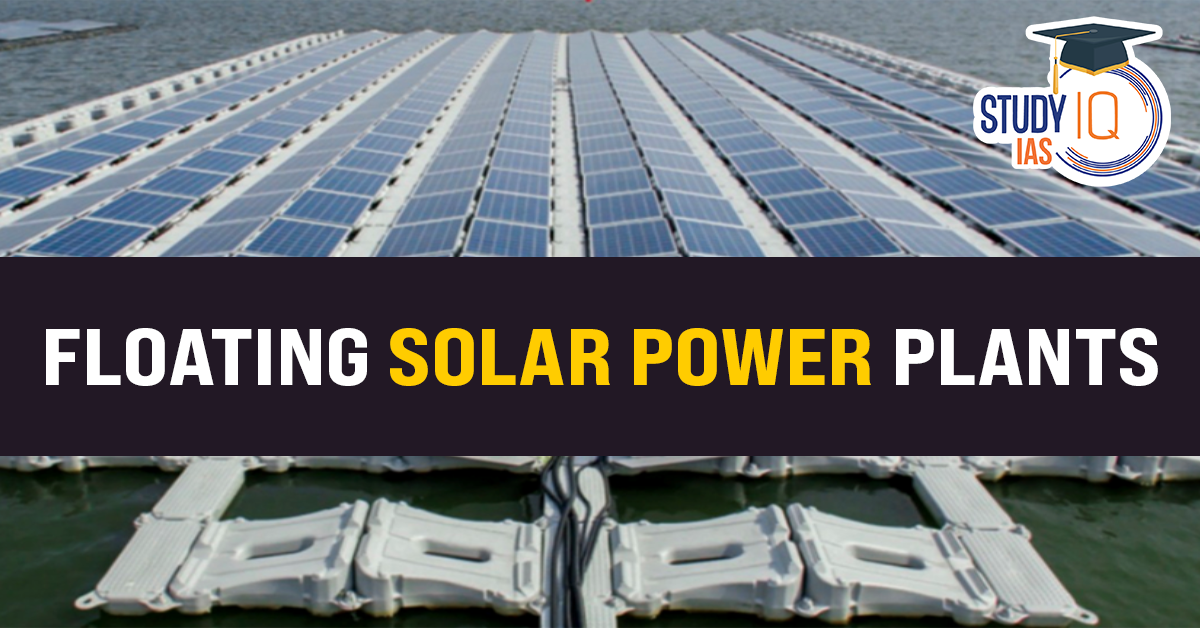Floating Solar Power Plants
- It is a solar panel system that is installed on floating structures on bodies of water, such as lakes, ponds, reservoirs or canals. They are also called
- Covering 10% of the world’s hydropower reservoirs with ‘floatovoltaics’ would install electrical capacity equivalent to that provided by all electricity-generating fossil fuel plants in operation worldwide.
- Advantages over traditional solar power plants:
- Land use: Floating solar power plants don’t require land space, so the land can be used for other purposes.
- Water cooling: The water’s cooling effect improves the performance of solar panels by 5-10%.
- Reduced evaporation: Floating solar power plants reduce the amount of water lost through evaporation.
- Reduced algae growth: Floating solar power plants reduce the amount of sunlight reaching the water surface, which reduces algae growth.
- Floating solar power plant in India:
- Ramagundam, Telangana (100 MW)
- Omkareshwar Dam in Khandwa, Madhya Pradesh – 600 MW
- After construction it will be the largest floating solar power plant in the world.


 Bihar BPSC 70th Mains Result 2025 Out: C...
Bihar BPSC 70th Mains Result 2025 Out: C...
 Pax Silica Initiative: Meaning, Objectiv...
Pax Silica Initiative: Meaning, Objectiv...
 Tapanuli Orangutan: Habitat, Characteris...
Tapanuli Orangutan: Habitat, Characteris...

























